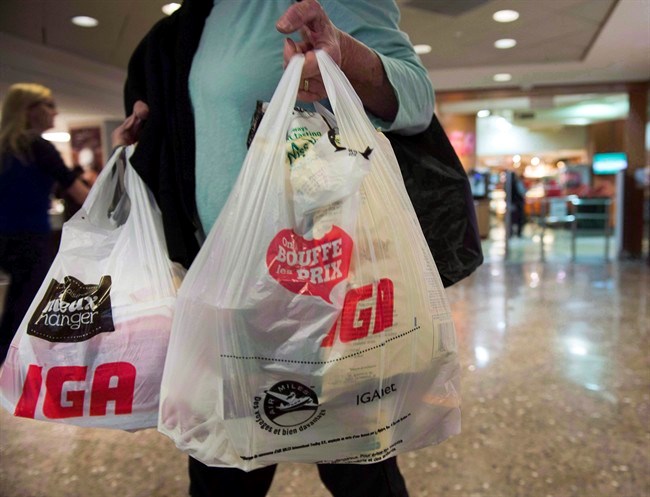Saanich has taken a step toward banning plastic bags, a move being considered by several B.C. municipalities in an effort to reduce pollution in the ocean and waterways.
Council expressed unanimous support Monday night for a bylaw that would ban single-use plastic bags, but the issue will be considered by two committees and go through public consultation before being made law.
Retailers would be required to charge for plastic bags to encourage shoppers to switch to reusable cloth shopping bags or paper bags.
“Sometimes putting a small charge on a plastic bag is enough to change behaviour,” said Coun. Susan Brice, who is leading the issue.
Some plastic bags will still be allowed, such as plastic bags to wrap meat, to package loose bulk items, to protect newspapers or flyers and to protect clothes following dry cleaning. People will also be allowed to buy garbage bags, pet waste bags and compost bags.
The bylaw will be reviewed by the environment and natural areas committee, and the planning, transportation and economic development committee before being opened up to public feedback.
Coun. Dean Murdock said most retailers are already preparing for the sea change against plastic bags. “There’s been more than enough warning that this was coming,” Murdock said. “It seems like the market is in a potion to respond to this type of change.”
Councillors heard a passionate appeal from two Grade 10 students from Glenlyon Norkfolk School, Charlotte Brady-Townsend and Anastasia Castro, who urged councillors to “ban the bag.”
Plastic bags are made from non-renewable petroleum sources, which contribute to greenhouse gases and climate change. Plastic materials that take hundreds of years of years to break down end up in storm drains, in waterways and can be ingested by wildlife, Brady-Townsend and Castro pointed out.
“Banning the bag here will not solve the world’s plastic problems,” said the girls’ teacher Margaret McCullough. “But it’s the combination of all the little places in the world that matters.”
The City of Victoria is aiming to ban plastic bags by the end of the year. The city has just wrapped up a public engagement campaign and a public hearing on the issue will take place this month.
The City of Vancouver is also eyeing bans as a way to reduce the number of coffee cups, plastic bags, and take-out containers. American cities such as Portland, Los Angeles and San Francisco have banned plastic bags.



